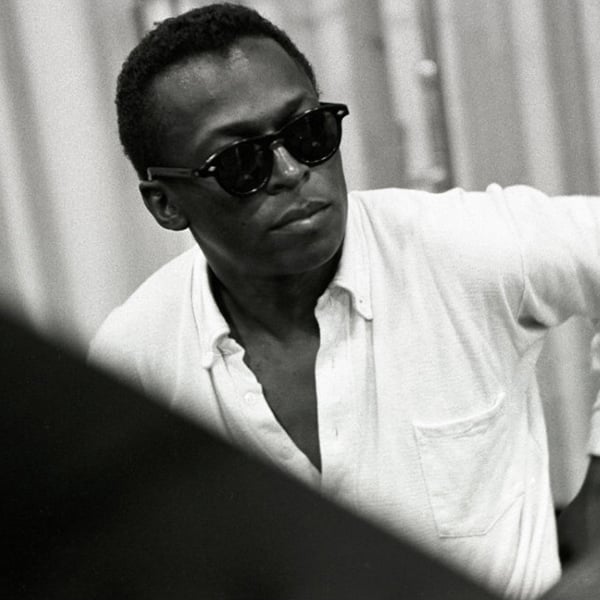
That Miles and Warner Music VP Tommy LiPuma would desire to repeat past success holds little surprise. Amandla—in approach, sound, and even title (“amandla” means power in Zulu and was the rallying cry of the South African anti-apartheid movement)—is the child to Tutu, with one notable exception. Whereas Tutu had been a variety pack of beats, melodies and textures, Miles’ final collaboration with bassist/producer Marcus Miller holds together as a more consistent endeavor, the rhythmic influences (rock, go-go, zouk, funk, even old-school swing) flowing together into a more balanced, and satisfying whole.
“If I could have one album,” Miller later told George Cole for his book Last Miles, “I would take the song ‘Tutu’ and put it at the front of Amandla and I think it would be a very good representation of where I started and what I wanted to achieve.”
Much of it had to do with a more reductive approach than Tutu: allowing Miles’ trumpet to glow brighter in the open space around him. The Washington Post, typical of the media reception, wrote: “This is the most successful Miller/Davis project yet, because there’s more room for Davis’ tender, personal solo voice on the trumpet to express itself and because Miller has learned to do more with less.” Other critics, for much the same reason, were pleased to hear echoes from Miles’ rich legacy. “From the perspective of his past, Amandla is the most traditional Miles Davis record in years,” went the review in The Guardian. “The opening ‘Catembe’ would slot into a Miles Smiles or Nefertiti session.”
Recorded in late 1988 and early 1989, Amandla featured a potpourri of musicians in Miles’ circle at the time. Saxophonist Kenny Garrett, drummer Ricky Wellman, piccolo bassist Foley all appear, as did others from his touring band: tenor saxophonist Rick Margitza, keyboardist Joey DeFrancesco, and percussionist Mino Cinelu. Newer names like guitarists Jean-Paul Bourelly and Michael Landau guested, as did old friends: keyboardist George Duke, percussionists Don Alias and Paulinho DaCosta, and drummers Al Foster and Omar Hakim.
The majority of parts are played by Miller, who composed all of the album’s tunes save for George Duke’s “Cobra” and John Bigham’s “Jilli.” Amandla was dedicated to Miles’ legendary arranger and collaborator Gil Evans, who had passed away in March 1988. Similarly, “Mr. Pastorius,” the album’s final track, was similarly written in tribute to the great bassist Jaco Pastorius who had died in late 1987; on it, Miles’ open trumpet is markedly naked and free of electronic support or embellishment, adding poignancy where it was most intended.









